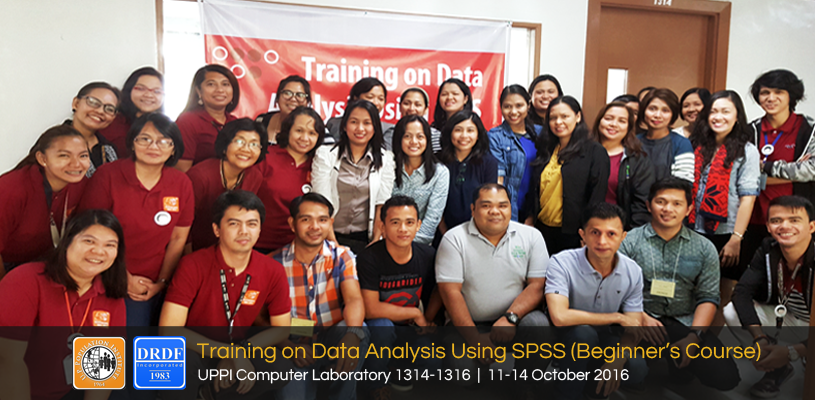

The University of the Philippines Population Institute (UPPI) in collaboration with the Demographic Research & Development Foundation, Inc. (DRDF) conducted the Training on Data Analysis Using SPSS (Beginner’s Course) on 11-14 October 2016 at the UPPI Computer Laboratory, Room 1314-1316, Palma Hall, University of the Philippines, Diliman, Quezon City.
Course description
The course is designed to provide an intensive introduction to the latest version of the Statistical Package for the Social Sciences (SPSS), now known as IBM SPSS Statistics. SPSS is a user-friendly Windows-based statistical software and a powerful and versatile tool for data analysis. The training combines lecture and hands-on laboratory sessions and involves an analysis of a subset of a large dataset.
Who should attend?
The course is recommended for faculty members, graduate students, business analysts and other researchers who want to enhance their data analysis capability. The training targets those with limited statistical background and is also an appropriate refresher for those whose statistical experience was gained many years ago.
Prerequisites
Participants should have knowledge of basic statistical concepts and should have experience in computer operations using MS Windows. Experience with SPSS is not necessary, although a basic understanding of the purpose and functions of the software is helpful.
Course outline
The course covers the following topics:
- Overview of SPSS
- Univariate analysis and graphical presentation
- Frequency distributions, Measures of central tendency and Measures of dispersion
- Data management
- Variable creation and transformation, Selection of cases
- Bivariate analysis
- Crosstabulations, Chi-square test, ANOVA, t-test
- Linear regression analysis
Resource persons
The trainors consist of UPPI faculty members who have extensive experience both in teaching SPSS and in survey data processing and analysis using the software. Faculty members from other UP units may also be invited as resource persons. Facilitators or laboratory assistants are available to assist the participants during the hands-on sessions.
Share
